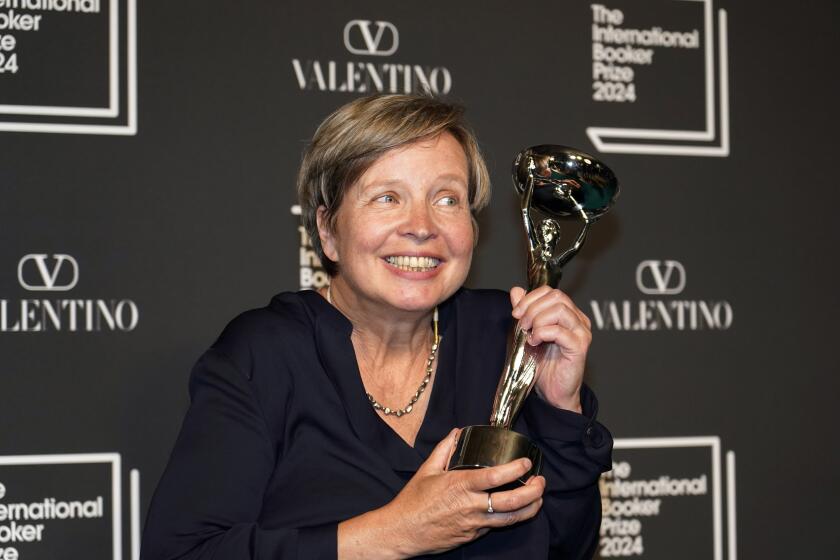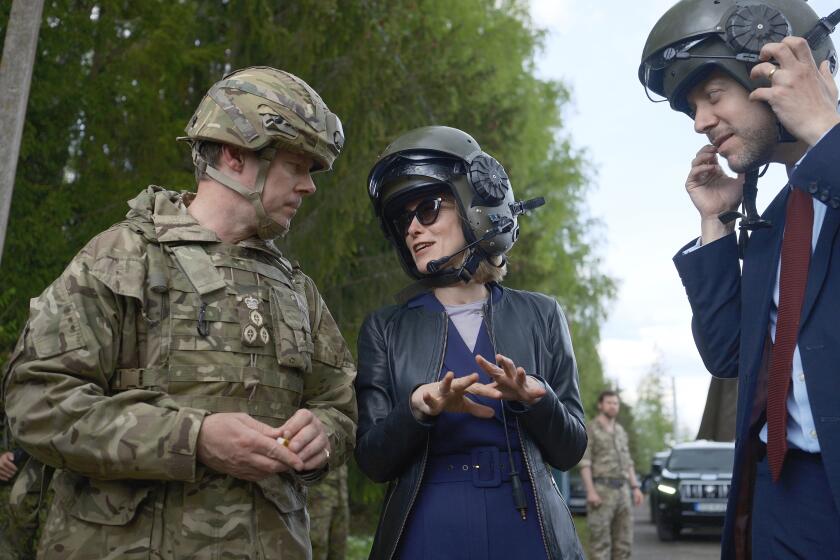Communist Crossroads
Most Kremlin-watchers agree that the United States and other Western countries know too little about the inner workings of Soviet politics to think that they can nudge Moscow toward the kind of policies that the West would like to see. However, decisions by the Soviet power structure are of enormous consequence to the world.
This week’s meeting of the Soviet Communist Party’s 307-member Central Committee is of special importance. It could prove to be a make-or-break point for Soviet General Secretary Mikhail S. Gorbachev’s ambitious plans for reforming the creaky Soviet economy; the outcome of the struggle over economic reform could in turn have a major effect on arms control and Soviet foreign policy generally.
Up to now the economic reforms have mostly been a matter of trying to make the existing system work better. The crackdown on alcoholism, laziness and corruption have paid some economic dividends. But fundamental changes must be made if the Soviet economy is really to attain major-league status in the computer-based, high-technology world of today.
Gorbachev, having accepted this reality, wants to loosen the highly centralized Soviet system of allocating industrial supplies to give enterprises more freedom from the control of Moscow-based bureaucracies and in setting prices that reflect supply and demand.
By his own account, however, Gorbachev has run into determined opposition among entrenched bureaucrats, who number in the hundreds of thousands and who don’t want to risk losing the power and perquisites that flow from the present system. Meanwhile, the dismissals of several high-ranking military officers suggest that opposition has also come from military officials who fear a shift of resources away from the defense sector.
Opposition to Gorbachev’s reform position apparently is reflected within the Central Committee; this week’s meeting was originally set for June 9-10 but was postponed. The Soviet leader has indicated that the ruling Politburo itself is split over the reforms. As a result, he may be hampered in his ability to seek Central Committee endorsement of the proposals. If that is the case, next week’s meeting of the Supreme Soviet may not be able to deal seriously with economic reform, either.
It may turn out that the crucial question is whether Gorbachev will have sufficient control over the Central Committee meeting to force the ouster of additional naysayers and elderly holdovers from both the committee and the Politburo and to replace them with members of his own team. President Andrei A. Gromyko could be eased off the Politburo, for example. It is assumed that Gorbachev would also like to see Geydar A. Aliyev, a crony of the late Leonid I. Brezhnev, removed.
If Gorbachev is able to nail down his control, he will then be in a stronger position to pursue his controversial reform plans. But if the opposition manages to dig in, his reform movement may lose steam and the Kremlin power structure could gradually settle back into somnolent acceptance of the old ways of doing things--ways that brought about the very economic and social crisis that Gorbachev is trying to cure.
Because the Gorbachev reforms carry at least a hope of more accommodating behavior toward the outside world, the outside world would share Gorbachev’s loss if his reforms were smothered in the cradle.
More to Read
Start your day right
Sign up for Essential California for news, features and recommendations from the L.A. Times and beyond in your inbox six days a week.
You may occasionally receive promotional content from the Los Angeles Times.






